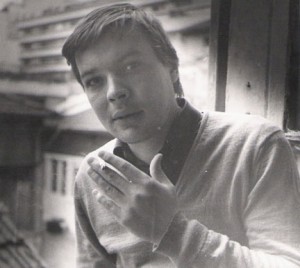Yesterday’s NYT carried a profile by Allan Kozinn of Lev Zhurbin (aka Ljova) who featured in a previous post about Joe Stickney’s poetry. From the profile:
Lev Zhurbin, the violist, composer and arranger who performs and writes under the name Ljova, almost always has a lot of projects before him. If he isn’t writing for, or recording with, his folk-classical ensemble, Ljova and the Kontraband, or performing in Romashka, a Gypsy band led by his wife, the singer Inna Barmash, he is working on film scores or transcriptions. (He has arranged Indian and Sephardic pieces for the Kronos Quartet; Asian and Eastern European works for Yo-Yo Ma’s Silk Road Project; Schubert and Shostakovich compositions for the Knights, a chamber orchestra).”
Which gives me the chance to recommend again Ljova and the Kontraband’s superb album, Mnemosyne. They are even better live, if that were possible.
